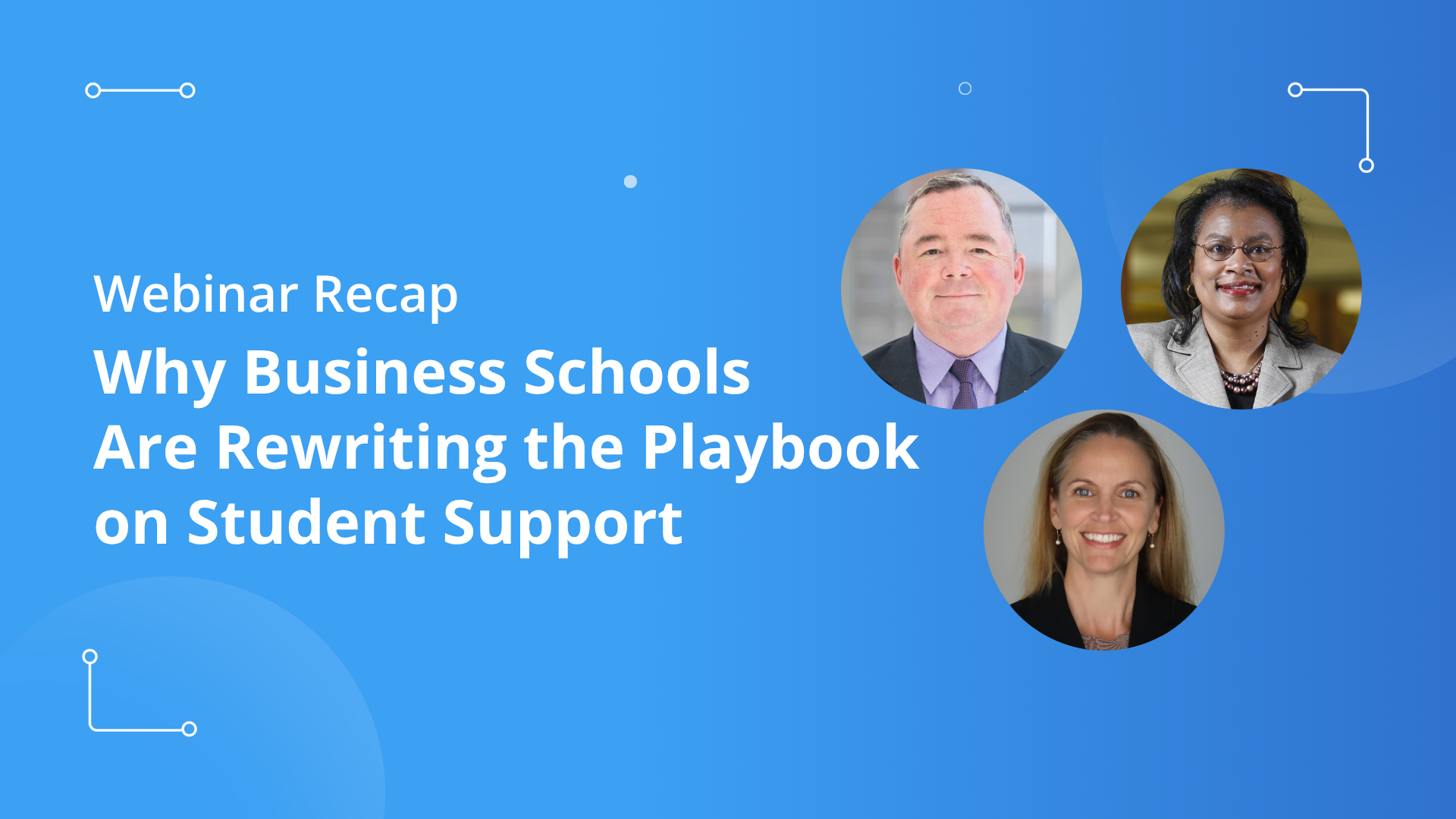Business schools are rethinking student support to address three persistent challenges: retention and persistence, accessibility and flexibility, and career readiness. Leaders from Temple University’s Fox School of Business (Charles Allen), Jackson State University’s College of Business (Dr. Sheila Porterfield), and Kennesaw State University’s Coles College of Business (Harriett Pyburn) recently spoke about how Knack’s peer learning model is helping them move the needle.
1) Retention & Persistence
Retention and persistence remain pressing concerns across higher education, and business schools face unique pressure points. Students juggle rigorous coursework, internships, and career expectations, and nearly half fall behind after their first term. At Temple, Allen explained how his team uncovered a patchwork of tutoring programs, with some strong and some nonexistent, and realized students were slipping through the cracks. By piloting Knack in 10 core courses and later expanding to every course offered, the Fox School created a unified, scalable system. The result was a 339 percent increase in usage within two years, along with measurable gains in GPA and year-to-year persistence. Importantly, the strongest adoption came from sophomores and juniors, groups that often receive less attention in traditional retention strategies. For Temple, peer learning is no longer just a support service; it is a strategic lever for keeping students on track to graduation.
2) Accessibility & Flexibility
Today’s business students rarely fit the mold of the traditional, full-time residential learner. Many are balancing jobs, internships, and family responsibilities while commuting or taking courses online. That reality makes fixed tutoring hours and location-based support increasingly out of step with student needs. At Jackson State, Porterfield described how inconsistent departmental tutoring left gaps that frustrated students and faculty alike. By implementing Knack, students can now access support whenever and wherever it fits into their schedules. Data shows that 70 percent of sessions happen outside traditional 9-to-5 hours, clear evidence that flexibility matters. At Kennesaw State, where students must earn a 3.0 GPA across seven “gatekeeper” courses before advancing into the business school, early access to tutoring has been critical. With over 70 percent of KSU sessions taking place online and nearly half outside normal hours, students are able to engage with support on their own terms, reducing the risk of delayed graduation. Both institutions highlight how Knack simplifies the message for students: support is always available, regardless of course, schedule, or circumstance.
3) Career Readiness & Leadership Development
Beyond keeping students on track, peer tutoring is also shaping the leaders employers want to hire. Employers consistently rank skills such as communication, teamwork, and adaptability as equally important as technical knowledge. Peer tutoring provides a natural environment for students to practice these skills. At Kennesaw State, as Pyburn explained, top tutors are now leading large-scale review sessions, sometimes with more than 80 students in attendance, transforming tutoring into a leadership opportunity that builds confidence and resumes. Temple has also seen its tutors take on substantial responsibilities, averaging more than 30 sessions each year, which strengthens both mastery of academic content and the ability to guide peers. At Jackson State, tutors are earning reputations as trusted peer leaders, with students requesting specific individuals by name. These experiences go beyond classroom learning, giving tutors a chance to practice mentorship, communication, and professionalism, skills they carry into graduate programs, internships, and careers. For institutions, this dual impact makes Knack not only a tool for academic success but also a powerful career readiness strategy.
Looking Ahead
The panel returned to a central question: Are we preparing students for the classroom, or for the boardroom? For these institutions, the answer is both. Knack helps business schools catch students before they fall through the cracks, make academic support visible and flexible, and transform peer learning into a cornerstone of career readiness. The experiences at Temple, Jackson State, and Kennesaw State demonstrate what is possible when institutions rethink support not as a stopgap, but as a scalable strategy for equity, persistence, and long-term student success.
Ready to explore how Knack could work on your campus? Let’s start the conversation.
